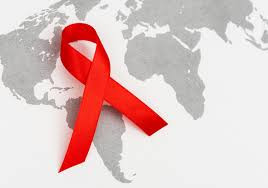
GOVERNMENT with the support of funding partners yesterday launched the Zimbabwe One Health Antimicrobial Resistance (AMR) National Action Plan to save lives from the ever-increasing range of infections caused by bacteria, parasites, viruses and fungi.
AMR happens when germs like bacteria and fungi defeat drugs designed to kill them.
According to the World Health Organisation, AMR is one of the most serious global public health threats in this century.
Health and Child Care minister Douglas Mombeshora reaffirmed government’s commitment to global health security during the launch of the AMR plan yesterday in the capital.
“With the launch of the 2024-28 National Action Plan for AMR resistance, Zimbabwe is showing the world that we are ready to act against this crisis,” he said.
“If left unchecked, a crisis could cost Zimbabwe 5%-7% of GDP [gross domestic product] by 2050 and not to mention the strain it will place on our healthcare system and on our farms. This is the not time for despair, but it is time for action.”
Mombeshora said government’s action plan revolved around raising awareness, strengthening surveillance systems, promoting prevention practices, optimising antimicrobial use and fostering research as well as innovation.
“I am pleased to announce that the UK’s Fleming Fund Grant 2.0 will be valued at 2,8 million pounds and is aimed at addressing gaps in surveillance and the utilisation of data generated for policy making,” he said.
- Mavhunga puts DeMbare into Chibuku quarterfinals
- Bulls to charge into Zimbabwe gold stocks
- Ndiraya concerned as goals dry up
- Letters: How solar power is transforming African farms
Keep Reading
United Kingdom ambassador to Zimbabwe, Pete Vowles reiterated his country's commitment fighting AMR.
“Our approach to the Fleming Fund reflects the UK’s commitment to improve the way we support international development,” he said.
“The UK has prioritised global health security, including AMR.
“As part of our global health strategy, we need to work hand-in-hand to address this threat to our nation and our people.”
World Health Organisation representative Dresta Tiruneh said there was an urgent need to address the AMR global crisis.
“If left unaddressed, it is estimated that by 2050, AMR will lead to a staggering 10 million deaths per year, from the current level of 700 000 per year,” Tiruneh said.
“It will result in the reduction of GDP globally by about 3,5%. The cumulative cost to the world will be up to about US$100 trillion annually.”










